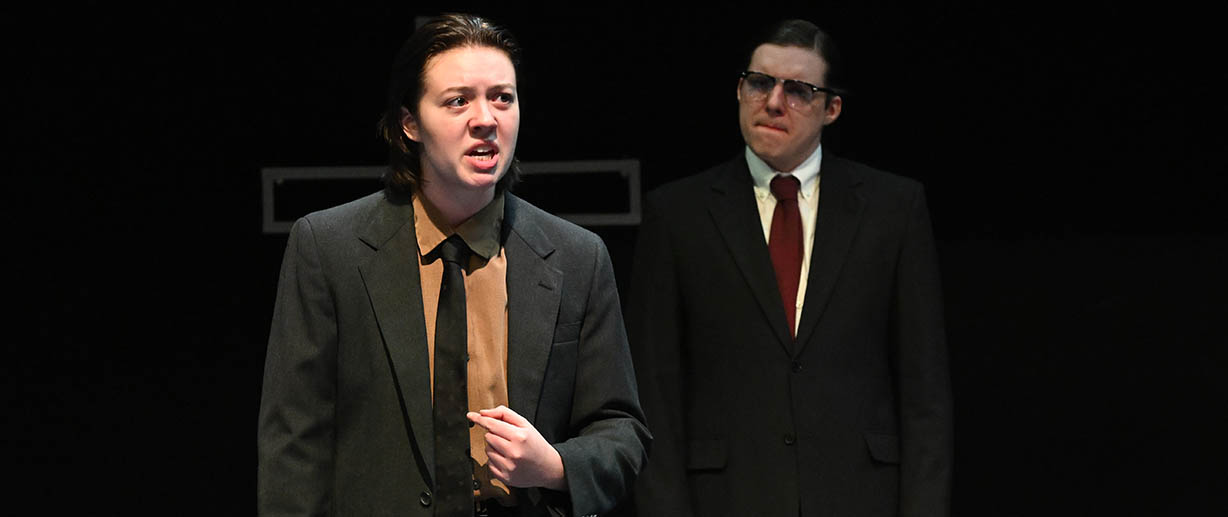Brandi Wylie ’24
Emmy Monteverde ’24 is making the most of her last time around with Wofford’s Pulp Theatre Interim. In addition to serving as assistant director and set designer, Monteverde, a theatre and English double major from Easley, South Carolina, plays the role of Joshua, an associate pastor, in the group’s production of Lucas Hnath’s “The Christians.”
As the only senior in the course this year, she’s also taken on an extra leadership role.
“I know how things have been run and how things need to be run,” says Monteverde. “So, I feel a responsibility for making sure that happens.”
Pulp Theatre is an Interim project that allows students to take the lead in all aspects of a production. The four-week term concludes with performances scheduled for 8 p.m. Thursday through Saturday (Jan. 25-27) in the Sallenger Sisters Black Box Theatre inside the Rosalind Sallenger Richardson Center for the Arts. Performances are free and open to the public. The box office opens at 7 p.m. each night, and tickets are distributed on a first-come, first-served basis.
Anneka Brannon ’26, a theatre and humanities double major from Inman, South Carolina, is the director. In in her application for the role, she suggested producing “The Christians” because of the way it depicts people in power using their positions in various ways, specifically relating to religion.
“‘The Christians’ is meant to make people think, with no intention to sway anyone any way specifically about religion,” Brannon says. “I just want people to think about the people in power in their lives and how people commodify and try to market things like religion, which is so important to an individual.”
“The Christians” follows the story of a church and its congregation after the pastor reveals one of his controversial beliefs after he has been elected to serve in such a great position of power. The audience members are positioned with the congregation and can experience these events through this lens. Monteverde says the production skillfully engages the audience with “philosophical discourse,” without an agenda or specific objective. She says that it is “poetically written and formatted.”
“Come with an open mind, and leave your preconceptions and expectations at the door,” Monteverde says.
